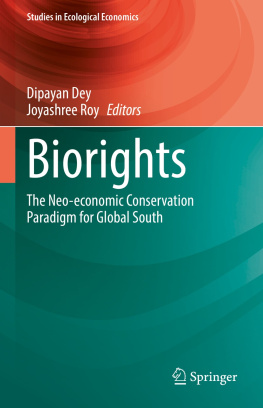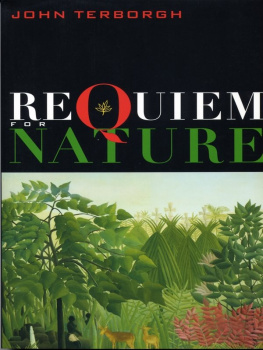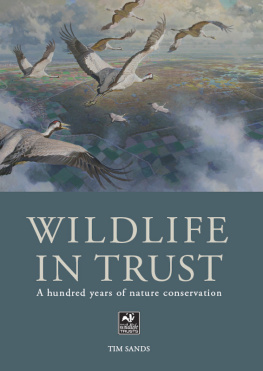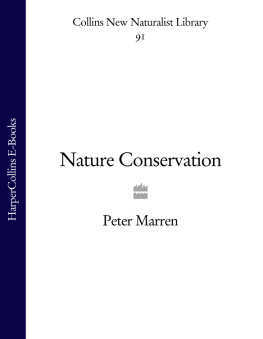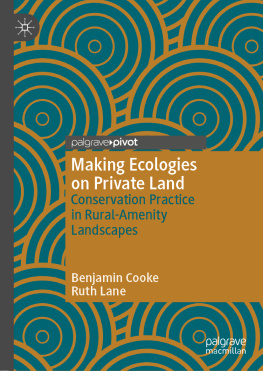First published in hardback in 2003 by
Berghahn Books
www.BerghahnBooks.com
First paperback edition published in 2004
First ebook edition published in 2012
2003, 2004 Eeva Berglund and David G. Anderson
All rights reserved.
No part of this publication may be reproduced in any form or by any means without the written permission of Berghahn Books.
Library of Congress Cataloging-in-Publication Data
Ethnographies of conservation : environmentalism and the distribution of privilege /
edited by David G. Anderson and Eeva Berglund.
p. cm.
Includes bibliographical references and index.
ISBN 1-57181-464-7 (cloth : alk. paper) ; ISBN 1-57181-696-8 (pbk: alk. paper) ; ISBN 978-0-85745-674-8 (ebk)
1. Human ecology--Moral and ethical aspects. 2. Human ecology--Economic
aspects. 3. Consumption (Economics)--Moral and ethical aspects. 4. Environmental
ethics. 5. Distribution (Economic theory)--Moral and ethical aspects. 6. Distributive
justice. 7. Material accountability. 8. Conservation of natural resources--Economic
aspects. I. Anderson, David G., 1965-II. Berglund, Eeva K.
GF80 .E855 2002
178dc21
2002066724
British Library Cataloguing in Publication Data
A catalogue record for this book is available from the British Library
ISBN 1-57181-464-7 hardback
ISBN 1-57181-696-8 paperback
ISBN 978-0-85745-674-8 ebook
Figure 1 Replant, recycle, repair the world? The grass airstrip at the heart of the conservation area in Haia, Papua New Guinea. Photo: David M. Ellis.
NOTES ON THE CONTRIBUTORS
Cristina Adams is a Ph.D. candidate at the Department of Ecology, University of So Paulo, Brazil. She was Visiting Research Fellow at the Department of Anthropology, University of Kent at Canterbury, 19992000. Her research experience concerns environmental anthropology, protected areas, the Atlantic rainforest and the Amazon.
David G. Anderson is senior lecturer in social anthropology at the University of Aberdeen. His ongoing research is on ecology and indigenous rights in the circumpolar Arctic. He has recently published a monograph on Evenki and Dolgan reindeer herders entitled Identity and Ecology in Arctic Siberia: The Number One Reindeer Brigade with Oxford University Press.
Eeva Berglund was lecturer in anthropology at Goldsmiths College. She has written on the anthropology and history of environmental politics. Her monograph Knowing Nature, Knowing Science: An Ethnography of Environmental Activism was published in 1998.
Dawn Chatty is Senior Dulverton Fellow and Deputy Director of the Refugee Studies Centre, Queen Elizabeth House, University of Oxford. Her research interests include pastoral nomadism and conservation, gender and development, and coping strategies of children and adolescents in prolonged conflict and forced migration. Her monograph Mobile Pastoralists: Development Planning and Social Change in Oman was published in 1996.
David Ellis is a Ph.D. student in environmental anthropology at the University of Kent at Canterbury and works for the Future of Rainforest Peoples Programme. He conducted fieldwork in Papua New Guinea between 1996 and 1999 on the comparative ethnography of local histories, and the impacts of conservation biology and development. He is the author of Pawaia people of the Pio-Tura region, Papua New Guinea: Final Report of the Future of Rainforest Peoples Programme to the European Commission.
Nicola Frost is a Ph.D. student in the Anthropology Department at Goldsmiths College, University of London, with an ongoing research interest in politics and development in Eastern Indonesia.
Bornali Halder is completing her D.Phil. at the Institute of Social and Cultural Anthropology at the University of Oxford. Her main research interests are Native North American philosophies, indigenous rights, environmental activism and environmental ethics.
Dario Novellino is a Visiting Research Associate of the Institute of Philippine Culture (Ateneo de Manila University), and a Ph.D. candidate in environmental anthropology at the University of Kent at Canterbury. His current research interests include indigenous metaphysics, the techno-symbolic value of tool-behaviour and technological choices, ethnobiology, indigenous rights and environmental conservation.
Stephen Nugent teaches in the Department of Anthropology, Goldsmiths College, University of London and is Associate Fellow of the Institute of Latin American Studies. He is the author of Big Mouth: The Amazon Speaks (1990) and Amazonian Caboclo Society: An Essay on Invisibility and Peasant Economy (1993). With Mark Harris, he is currently preparing an edited volume, Some Other Amazonians.
Anja Nygren is an environmental anthropologist at the University of Helsinki, Finland. She is currently visiting scholar at the School of Natural Resources, University of Missouri-Columbia, United States. Her current research interests include environmental conflicts, protected areas, cultural representation of tropical forest-dwellers, legal pluralism and diversity of local livelihood strategies. She is the author of Forest, Power and Development: Costa Rican Peasants in the Changing Environment.
Luna Rolle holds a Master's degree in environmental anthropology from the University of Canterbury at Kent. She currently works with the Association ATEMA assisting the socio-economic integration of the Gypsy population in Strasbourg. Her current interests are in youth education and intercultural learning in interethnic contexts.
Sian Sullivan is a British Academy Post-Doctoral Research Fellow in the Deptartment of Anthropology at the School of Oriental and African Studies, London University. Her academic interests include cultural landscapes, dryland ecology and resource use, community-based conservation, environment and development discourses, gender, dance and the body. Among her recent publications is Political Ecology: Science, Myth and Power (co-edited with P. Stott).
Rachel Wrangham is a social anthropologist who has conducted research in Indonesia since 1995. She is currently working on her Ph.D. at the London School of Economics. Her current work focuses on rural development in Mozambique, and she has also worked in India and Thailand. She is an Associate Professional Officer with the United Kingdom Department for International Development.




